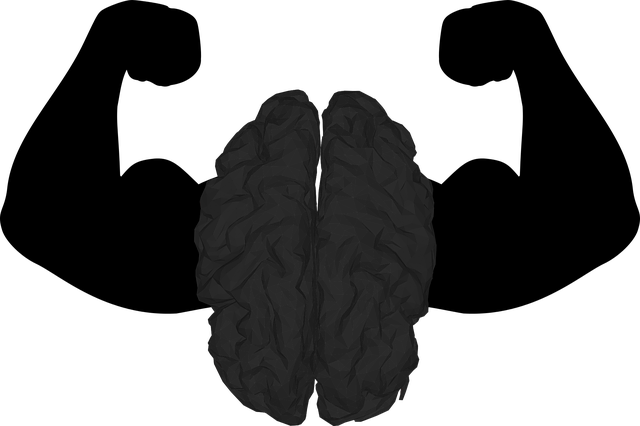Greenwood Village prioritizes mental health with comprehensive evaluations and tailored therapy, offering both short-term crisis intervention and long-term support. Trained professionals utilize assessments, compassion cultivation, and techniques like CBT to stabilize individuals during acute crises and address complex needs. Community outreach programs expand access to services, fostering resilience and improving outcomes for at-risk populations, including young adults facing depression. This holistic approach ensures a robust safety net within Greenwood Village and beyond.
In the face of crisis, effective intervention can be a lifeline. This guide explores crucial strategies for supporting individuals in Greenwood Village, focusing on both immediate and long-term well-being. From understanding the foundational principles of crisis intervention to assessing mental health through comprehensive evaluations, we delve into evidence-based therapy approaches for stabilization. Additionally, this article highlights building resilience and leverages community resources available in Greenwood Village and beyond, ensuring a holistic approach to fostering sustainable recovery.
- Understanding Crisis Intervention: A Foundation for Effective Support in Greenwood Village
- Assessing the Situation: Mental Health Evaluations for Accurate Diagnosis
- Short-Term Strategies: Therapy Approaches to Stabilize and Intervene
- Building Resilience: Long-Term Solutions for Sustainable Recovery
- Community Resources: Navigating Support Networks in Greenwood Village and Beyond
Understanding Crisis Intervention: A Foundation for Effective Support in Greenwood Village

In Greenwood Village, crisis intervention strategies are a crucial foundation for providing effective support to individuals in distress. These strategies aim to stabilize and assess individuals during acute mental health crises, with the ultimate goal of promoting emotional well-being. Mental health evaluations play a pivotal role, offering a structured framework to understand and address complex needs. Through these evaluations, professionals can tailor therapy interventions that cater to the unique circumstances of each individual.
By integrating compassion cultivation practices into crisis intervention, Greenwood Village fosters an environment of safety and understanding. Such techniques empower support providers to respond with empathy, enhancing the overall therapeutic experience. Additionally, community outreach program implementation expands access to mental health services, ensuring that individuals in need can receive timely assistance, regardless of their circumstances. This holistic approach not only stabilizes crises but also paves the way for long-term emotional well-being.
Assessing the Situation: Mental Health Evaluations for Accurate Diagnosis

When providing crisis intervention, assessing the situation is a critical step. Mental health evaluations are essential tools for accurately diagnosing individuals in distress, ensuring that the right support and treatment are offered. In Greenwood Village, therapy sessions often begin with a thorough assessment to understand the person’s emotional state, recent life events, and any underlying mental health conditions.
Trained professionals employ various methods, including structured interviews and standardized questionnaires, to gather information about symptoms, their severity, and duration. This process is vital for tailoring crisis intervention strategies, such as compassion cultivation practices and emotional regulation techniques, which are components of effective crisis intervention guidance. By incorporating these evaluations, mental health practitioners can deliver targeted support in line with the unique needs of each individual.
Short-Term Strategies: Therapy Approaches to Stabilize and Intervene

In situations where an individual is experiencing a crisis, short-term strategies play a pivotal role in providing immediate support and stabilizing their emotional state. One effective approach is psychotherapy, tailored to address the specific triggers and needs of the person in distress. Therapists skilled in crisis intervention can employ various techniques, such as cognitive behavioral therapy (CBT), to help individuals identify and change negative thought patterns and behaviors contributing to their crisis. This process enables them to develop coping strategies for managing intense emotions and stressful situations.
Greenwood Village’s mental health evaluations often lead to personalized therapy plans. These interventions focus on fostering emotional intelligence, enhancing communication strategies, and building resilience. Through open dialogue, therapists create a safe space for clients to express their feelings and fears, thereby alleviating immediate distress. Moreover, integrating community outreach program implementations can provide additional resources and support systems, ensuring individuals have access to long-term care and guidance beyond the initial intervention.
Building Resilience: Long-Term Solutions for Sustainable Recovery

Building resilience is a cornerstone of long-term crisis intervention strategies. It involves equipping individuals and communities with the tools to navigate future challenges, fostering adaptability and recovery. Greenwood Village Mental Health Evaluations and Therapy plays a vital role in this process by providing not just short-term relief but also guiding clients towards sustainable mental health management. Through therapy sessions and comprehensive evaluations, mental health professionals can identify underlying vulnerabilities and strengths, tailoring interventions to promote resilience.
Crisis Intervention Guidance, such as those offered in Greenwood Village, goes beyond immediate crisis resolution. It includes Compassion Cultivation Practices that teach individuals to respond to distress with kindness and understanding, both towards themselves and others. Additionally, Risk Management Planning for Mental Health Professionals is essential to ensure practitioners can effectively support clients while safeguarding their own well-being. By integrating these strategies, communities can build a more robust safety net, ensuring better recovery outcomes and enhanced resilience against future crises.
Community Resources: Navigating Support Networks in Greenwood Village and Beyond

Greenwood Village, with its vibrant community spirit, boasts an array of resources for mental health support and crisis intervention. Navigating these networks is a crucial step in providing effective guidance during times of distress. The local area offers various options, from counseling centers to community-based programs, ensuring accessible care for all residents. For instance, the village’s dedicated therapy services cater to individuals seeking mental health evaluations and long-term therapy solutions.
Community outreach program implementation plays a vital role in enhancing these resources. By reaching out to schools, places of worship, and local businesses, crisis intervention guidance can be offered proactively. This approach targets at-risk populations, such as young adults dealing with depression prevention, ensuring they receive the necessary support. The collaborative efforts between various organizations within Greenwood Village and beyond have the potential to create a strong safety net for those facing mental health crises.
In Greenwood Village, crisis intervention strategies play a pivotal role in supporting individuals during stressful situations. By understanding the fundamentals of crisis intervention, accurately assessing mental health through evaluations, employing effective short-term therapy approaches, fostering resilience with long-term solutions, and leveraging community resources, we can create a supportive ecosystem that promotes sustainable recovery. Integrating these practices ensures individuals receive the appropriate care they need, ultimately enhancing the overall well-being of Greenwood Village’s residents.










